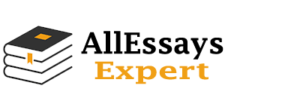COUC 521 Module 8 Counseling Training Process Discussion
Original discussion question.
After conducting your first intake interview, this discussion will give you a chance to process the experience with fellow first-time interviewers. Select one strength, one weakness, one plan for improvement, and one observation from the clients perspective to share with classmates.
Please respond to the following two posts
M.L Posted
Intake Interview Reflection DB
I appreciated the opportunity to give my first intake interview with my fellow students for learning and growth. One strength that I brought to the intake interview was empathy and warmth. The client stated that she shared more than she thought or planned and felt comfortable speaking with me. I try to be objective and look at each client as God would look at them. By doing this, I believe the client feels less judgment and is more secure. Hawkins and Clinton (2015) state that Christian counseling can be as simple as counseling by a Christian who believes in Christ and is spiritually filled.
There are multiple areas in which I need to improve, but one specifically is that I need to be aware of my actions. As I observed my video I noticed that I looked down and read from my intake form more than I realized. When I have decreased eye contact, my client may think I am not listening or paying attention. Simmons et al. (2020) suggest that making eye contact, expressing feelings, body language, and paraphrasing are essential in a counselor’s understanding and exploring skills. One way to improve this weakness is by practicing aloud and memorizing how to conduct an intake interview without having to look at a form.
One thing that I observed from the experience was how vulnerable I felt when being a mock client. I was not sure what was going to be asked and felt nervous about sharing my struggles. It was good to be in the client’s shoes and feel what they may feel which will help me be a better counselor in the future.
References
Hawkins, R., & Clinton, T. (2015). The new Christian counselor: A fresh biblical and transformational approach. Harvest House Publishers.
Simmons, R., Anita Kuhnley, A., & Lilley, S. (2020) Introduction to counseling: integration of faith, professional identity, and clinical practice. Kendall Hunt Publishing.
C.C posted
Performance reflection is a great way to enhance the learning process and promote growth and improvement (Sacco & Amende, 2020). Sacco and Amende (2020) suggest the use of metaphor as a creative way for counselors-in-training to self-reflect. In my paper, I described this experience as being on training wheels (Cox, 2021). For many of us, this was out first time conducting an intake interview, so we may have been wobbly. This discussion will be a great opportunity to enrich our reflections about strengths, weaknesses, improvement plans, and client perspectives.
Chen and Giblins (2018) cool head, warm hearttechnique inspired my disposition during the intake interview. The cool head allows the counselor to perform an objective assessment and the warm hearthelps the client feel more comfortable and understood (Chen & Giblin, 2018). Emulating this style of interviewing was a strength of mine during our practice. I was able to gather all the necessary assessment information while performing basic counseling techniques such as active-listening, empathy, reflection, and goal-setting.
I was happy with my planning process in regards to the questions I used during my semi-structured interview. My weakness was that I failed to adequately plan for the opening and closing of the session. At the start of the interview, I forgot to introduce myself as the counselor to the client. In addition, the end of my practice interview was relatively abrupt. The conclusion of my partners session included a summary of the entire intake and what to expect going forward. This reminded me that I had forgotten to perform this critical action during my interview.
This will seem cliché, but truly my best plan of action going forward is further practice. I am fortunate that I have friends and family that are willing to act as fictional clients for me to practice with. In my paper, I noted that practice can also come in many other forms of study such as viewing and evaluating online intake interviews and completing additional unassigned reading (Cox, 2021). We can also attend conferences and workshops in order to further our learning. Experience using and recognizing counseling and assessment techniques will increase our exposure, making us better prepared for practicum and internship.
As the client, I found myself wondering how much of my current scenario I wanted to share with the counselor. Withholding some information is probably a common reaction during initial counseling meetings. Clients may not reveal every important detail about their situation or problem due to discomfort, embarrassment, or shame. Chen and Giblin (2018) note that clients will likely reveal additional information in later sessions as they become more comfortable with the counselor and the counseling process.
Needs help with similar assignment?
We are available 24x7 to deliver the best services and assignment ready within 3-4 hours? Order a custom-written, plagiarism-free paper

